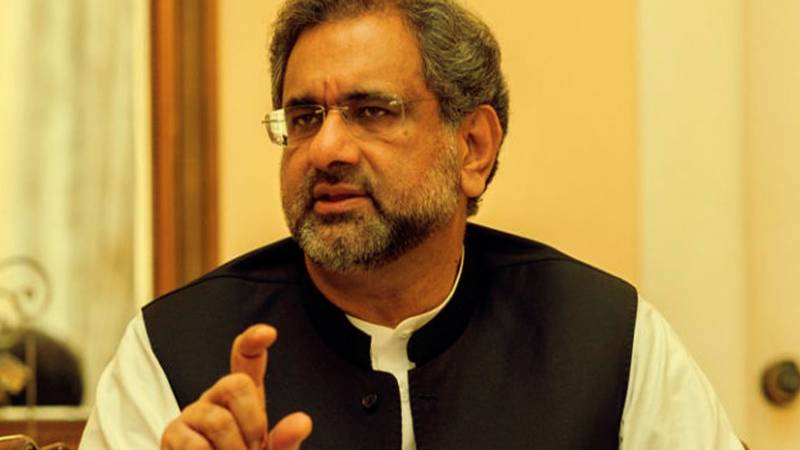
Former Prime Minister Shahid Khaqan Abbasi called for a bold approach to solving Pakistan’s challenges, urging that the country's interests be prioritized, at the Tabadlab 2025 Summit held in Islamabad on Friday.
“Put Pakistan first, and you will see a solution,” said Shahid Khaqan Abbasi. When asked if he would give up the option to be Prime Minister again in order to work towards fixing the issues facing the country, the former PM said he would consider it his ‘privilege.’
The summit, organized by the advisory firm and think tank Tabadlab, brought together experts from various fields to discuss the prospects and challenges facing Pakistan and the region in the coming year.
The annual, forward-looking event consisted of three panels highlighting key themes: the changing role of middle powers amidst global disruption; citizen empowerment in an era of climate change, digitalization, and societal divides; and the need for adaptive macroeconomic strategies for resilience in a world of shifting priorities and technological advancement.
University of Oxford Assistant Professor Dr. Adeel Malik said, “As we move away from a hyper-globalized world, there is more space opening up for regional integration. We need to start thinking beyond the prism of democracy to include bargaining structures and decentralization.”
Nasim Zehra, Diplomatic & Strategic Affairs Editor at Channel 24 and Associate at Harvard University Asia Centre, stressed the need for continuity in the political process, saying that ad-hocism and reactivity have been the undoing of Pakistan’s ability to fulfill its potential.
Discussing the need for a renewal of the relationship between the state and citizens, Taimur Khan Jhagra, former Health and Finance Minister of KP, said that citizens expect a combination of quality of life, services that governments can provide, and a sense of freedom. He also mentioned that successful service delivery helps build trust between the state and citizens.
The panelists also stressed the need for sustained economic growth without falling into damaging, consumption-based patterns.
“The government is focused on financing growth, but new jobs must be created to maintain stability,” said Business and Economy Journalist Khurram Husain. “Economic stability should not come at the cost of social stability,” he continued. He also stressed the need for policy thinking to look beyond simply surviving the next IMF review.
Kashmala Kakakhel, Climate Finance Specialist, spoke about the need for the public sector to take the lead in developing climate finance in Pakistan and work with the private sector to ensure that resources are leveraged effectively.
In the concluding session of the day, Special Guest former Prime Minister Shahid Khaqan Abbasi said that Pakistan has huge potential, but the people of the country have consistently been failed by their leadership. He said that the government needs to create opportunities for people—jobs and avenues for creating businesses—and that these opportunities would help bring back those who have left.
He also spoke extensively about the need for reform, saying, “The winning strategy is that we need to stop doing what we’ve been doing before. You can’t tinker with things anymore; you can’t brush things under the rug anymore. You have to look at your failures and understand what you need to fix.”
